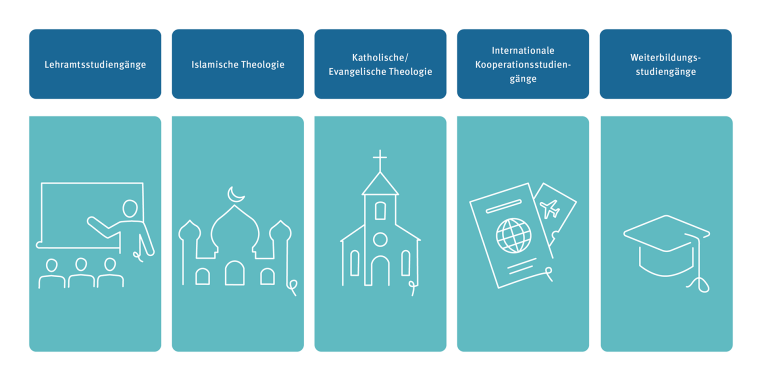Degree programs with additional legal requirements
For a number of degree programs offered at the University of Münster, which are quality-assured within the framework of the Quality Management System (QMS), additional legal requirements apply. Generally, these degree programs follow the QMS processes, but due to special legal requirements, deviations or supplements must be observed in some areas. These are explained in the respective section of the QM Portal for Studies and Teaching at the University of Münster (internal university area):

